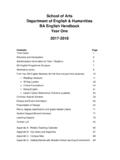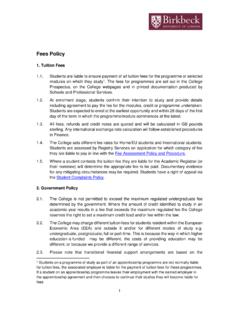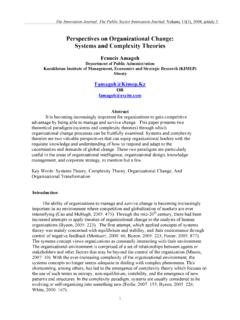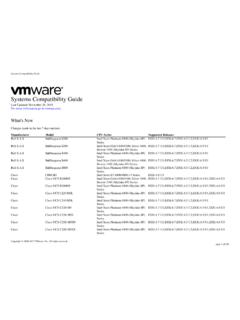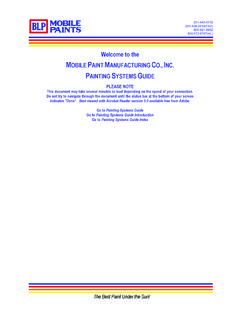Transcription of Systems Thinking, Organizational Change and …
1 This article was downloaded by: [Birkbeck College], [raymond caldwell]On: 23 March 2012, At: 08:53 Publisher: RoutledgeInforma Ltd Registered in England and Wales Registered Number: 1072954 Registeredoffice: Mortimer House, 37-41 Mortimer Street, London W1T 3JH, UKJournal of Change ManagementPublication details, including instructions for authors andsubscription information: thinking , OrganizationalChange and agency : A PracticeTheory Critique of Senge's LearningOrganizationRaymond Caldwell aa Birkbeck College, University of London, UKAvailable online: 23 Mar 2012To cite this article: Raymond Caldwell (2012): Systems thinking , Organizational Changeand agency : A Practice Theory Critique of Senge's Learning Organization, Journal of ChangeManagement, link to this article: SCROLL DOWN FOR ARTICLEFull terms and conditions of use: article may be used for research, teaching, and private study purposes.
2 Anysubstantial or systematic reproduction, redistribution, reselling, loan, sub-licensing,systematic supply, or distribution in any form to anyone is expressly publisher does not give any warranty express or implied or make any representationthat the contents will be complete or accurate or up to date. The accuracy of anyinstructions, formulae, and drug doses should be independently verified with primarysources. The publisher shall not be liable for any loss, actions, claims, proceedings,demand, or costs or damages whatsoever or howsoever caused arising directly orindirectly in connection with or arising out of the use of this thinking , OrganizationalChange and agency : A Practice TheoryCritique of Senge s LearningOrganizationRAYMOND CALDWELLB irkbeck College, University of London, UKABSTRACTFrom its earliest formulations, Systems thinking has been at the heart of the learningorganization, and it provided the inspiration for Senge s widely influential and idealised image of afuture characterised by new possibilities for Organizational Change and human agency .
3 But Senge svision of learning organizations was always characterized by a practice problematic: he did notdefine the social practices of learning that would realise the utopian ideals of the learningorganization. Change as Systems and Change as practices, Systems theory and practice remainprofoundly incompatible. Growing awareness of this issue has led to increasing doubts about thefuture of the learning organization, and there are mounting calls for new starting points or thefinal abandonment of the whole concept. Yet despite this sense of disillusionment, there have beenfew critical appraisals of Senge s legacy from a practice theory perspective that seeks to unravelthe links between practice and learning, agency and Change .
4 Here, it is argued that Senge s workcan be re-conceptualised as a partial fusion of Systems thinking and learning theories that leadsto a concept of Organizational learning as a process of system -based Organizational , the concept is critically flawed in two major respects. First, as a Systems or structuralmodel, it is theoretically flawed, because it cannot theorise the organizing practices by whichlearning and Change occurs in organizations. Second, it is substantively flawed as a practice forincreasing the dispersal of human agency , power, knowledge and autonomy within the is concluded that Senge s concept of the learning organization now faces its final abandonmentas a theoretical and practical guide to Organizational : Practice theory, Systems thinking , Organizational Change , human agency , learningorganizationJournal of Change ManagementiFirst article, 1 20, 2012 Correspondence Address:Raymond Caldwell, Professor of Organizational Change , School of Management,Birkbeck College, University of London, Malet St.
5 , Bloomsbury, London WC1E 7HX, UK. Print/1479-1811 Online/12/000001 20#2012 Taylor & by [Birkbeck College], [raymond caldwell] at 08:53 23 March 2012 IntroductionNew possibilities for Organizational Change and human agency have been centralto the learning organization from its inception, and they provided the inspirationfor Senge s enormously influential attempt to blend the hard and soft strands of Systems thinking into a practice-oriented manifesto of workplace the most important popularizer of system thinking , Senge sought to incorpor-ate the hard, practical problem-solving models of system dynamics into his work a clear reflection of his legacy as a graduate in engineering (Stanford) with aMasters in social- system modelling and a doctorate in management from MIT(Moxnes, 2009).
6 But Senge s work also borrowed selectively from the soft pre-scriptive- system learning theories of the Organizational development (OD) tra-dition, stretching back to Lewin s (1999) classic work on action research , Change agency and group learning through reasoned dialogue. Lewin s workon group dynamics was informed by optimistic assumptions regarding Systems be-haviour and feedback structures that allowed the emergence of new quasi-station-ary states of equilibrium in a context of continuous Change (Caldwell, 2006).Argyris and Scho n (1978) were to further develop these ideas into the conceptof organizations as learning Systems that encouraged double-loop learning.
7 Itwas, however, Senge who made system thinking the cornerstone of the learningorganization and, in doing so, brought the OD tradition back to its origins ingeneral Systems theory (Argyris and Scho n, 1978; Mirvis, 1996; Argyris, 2003).Despite the overarching importance of Systems thinking to Senge s learningorganization, its theoretical implications have not been seriously explored (Buiand Baruch, 2010). Senge (1990) examined five disciplines in his original formu-lation of the learning organization: personal mastery, mental models, team learn-ing, shared vision and Systems thinking . Achieving personal mastery requiredthe self-discipline of meditative practice and the ability to see the world holisti-cally as an integrated mind-body system : as individuals, we participate insystems, and we must locate our everyday practices within a systemic awarenessof the whole.
8 Creating and managing mental models also required new systemicinsights into the ingrained management assumptions that block real system changeand learning. Building a shared vision goes further in supporting Systems think-ing by requiring organizations to collectively develop a common sense of purposeand direction. Similarly, encouraging team learning through new forms of sharedlearning, dialogue and collective knowledge defined the systemic process forcreating a shared vision. Finally, the fifth discipline of Systems thinking was con-cerned with disclosing the universal feedback structures of system Change andorganizational learning: system thinking is a discipline for seeing wholes. It isa framework for seeing interrelationships rather than things, for seeing patternsof Change rather than static snapshots (Senge, 1990, p.)
9 23). Crucially, it isthe fifth discipline that forms the conceptual cornerstone that integrates theother four supporting disciplines, by fusing them into a coherent body oftheory and practice (1990, p. 12).While Senge s claims regarding the five disciplines have to be treated with con-siderable caution, and his work has many faces (Ortenblad, 2007), it is clear thathis undoubted innovation was to conjoin Systems thinking with practice and2R. CaldwellDownloaded by [Birkbeck College], [raymond caldwell] at 08:53 23 March 2012 learning in his formulation of the learning organization. This possibility was emer-gent in the treatment of societies and organizations as learning Systems , in whichlearning was, of necessity, a groping and inductive process for which there is noadequate theoretical basis (Scho n, 1973, p.
10 57). From this perspective, the learn-ing organization was bound to be an underdeveloped theoretical construct,because it could not theorize the inductive process of practice. Getting from Systems to learning also posed a theoretical dilemma in defining how individ-uals and organizations learn. Individual learning is, intrinsically, a highly proble-matic concept in sensory, cognitive and psychological terms, and this iscompounded if agency , as an action-theoretic concept of intentionality or theability to act, is identified primarily with the capacity to learn. Learning asaction or practice may seem a self-evident manifestation of our everyday con-scious experience, but it raises enormous conceptual issues in specifying how indi-vidual learning can become rational or effective in the face of defensivereasoning and self-deception (Argyris, 2004, p.
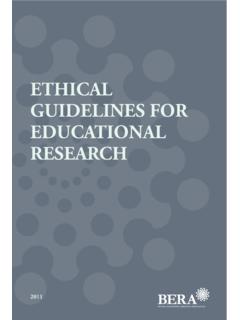
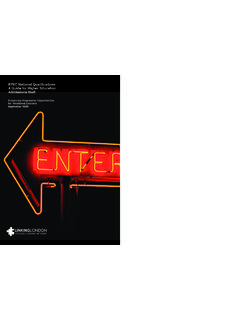
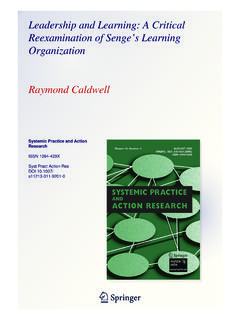
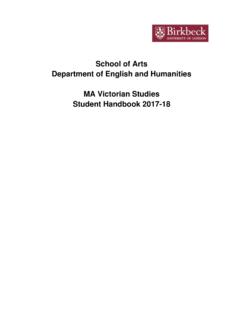
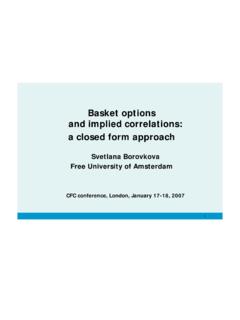
![[Your parent(s)/legal guardian(s) address] Entry …](/cache/preview/d/a/4/2/8/2/9/3/thumb-da428293fc86d7e7b8cebe1132189c1a.jpg)
